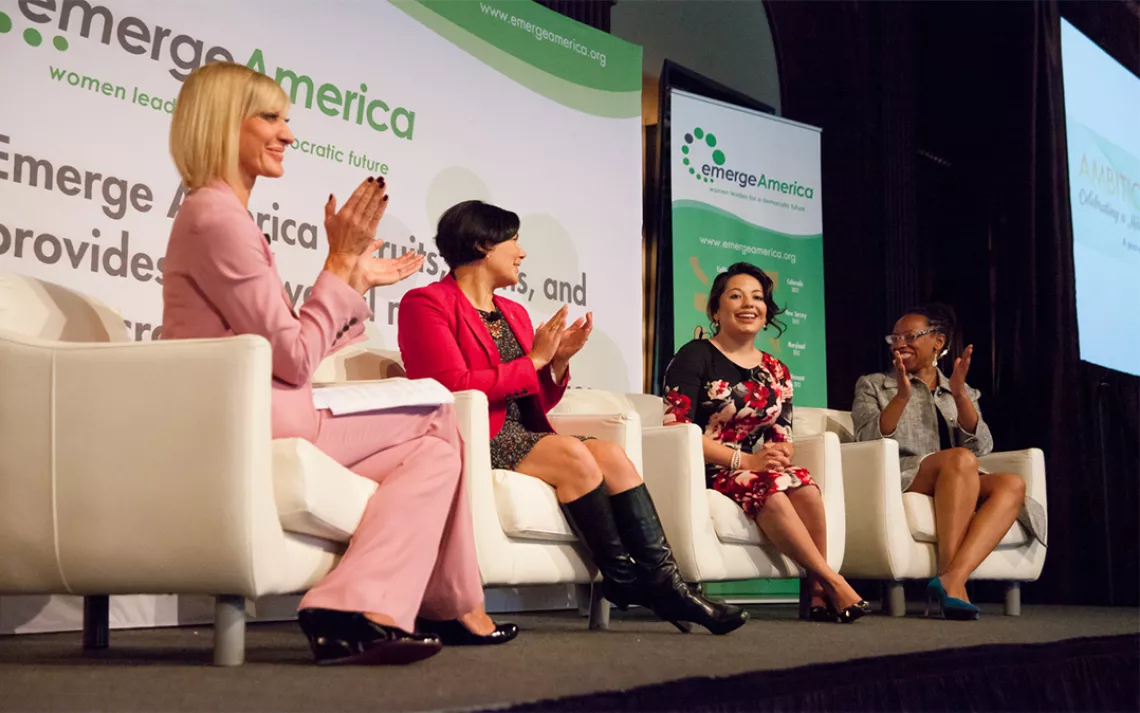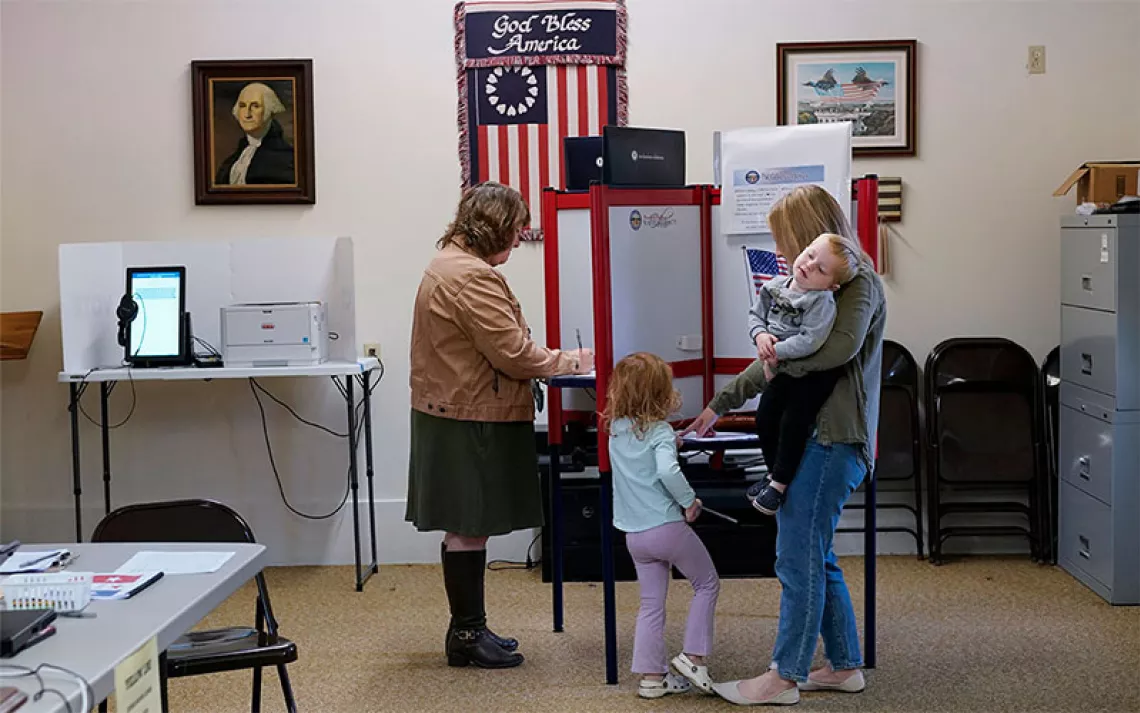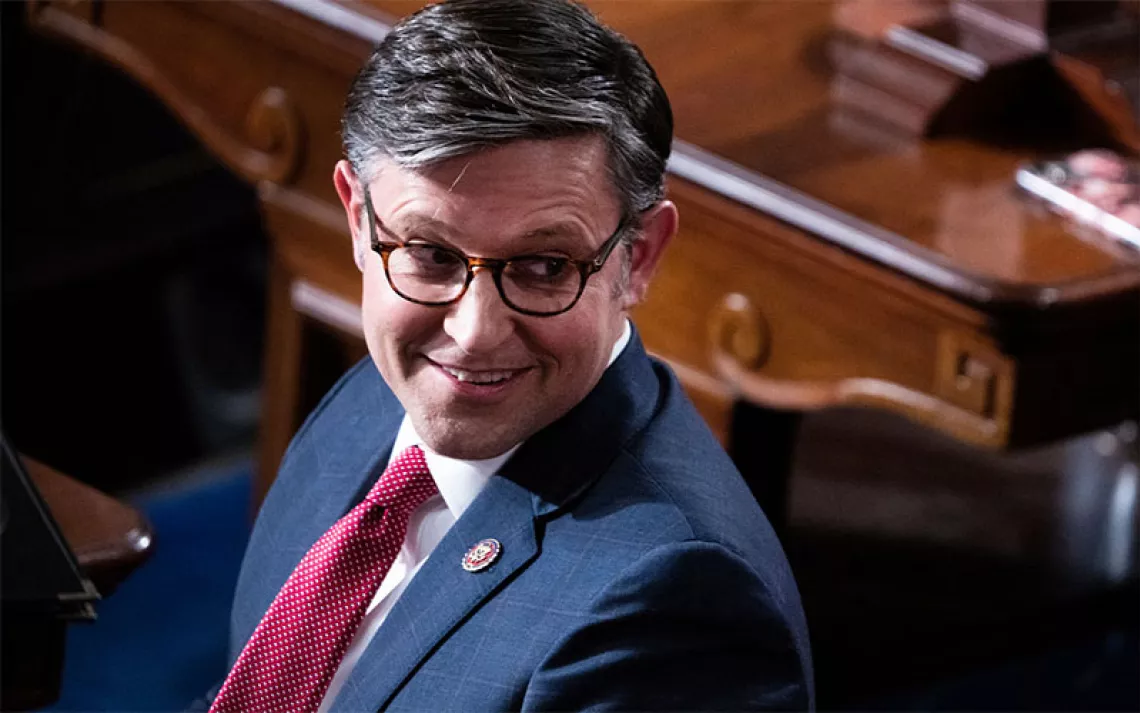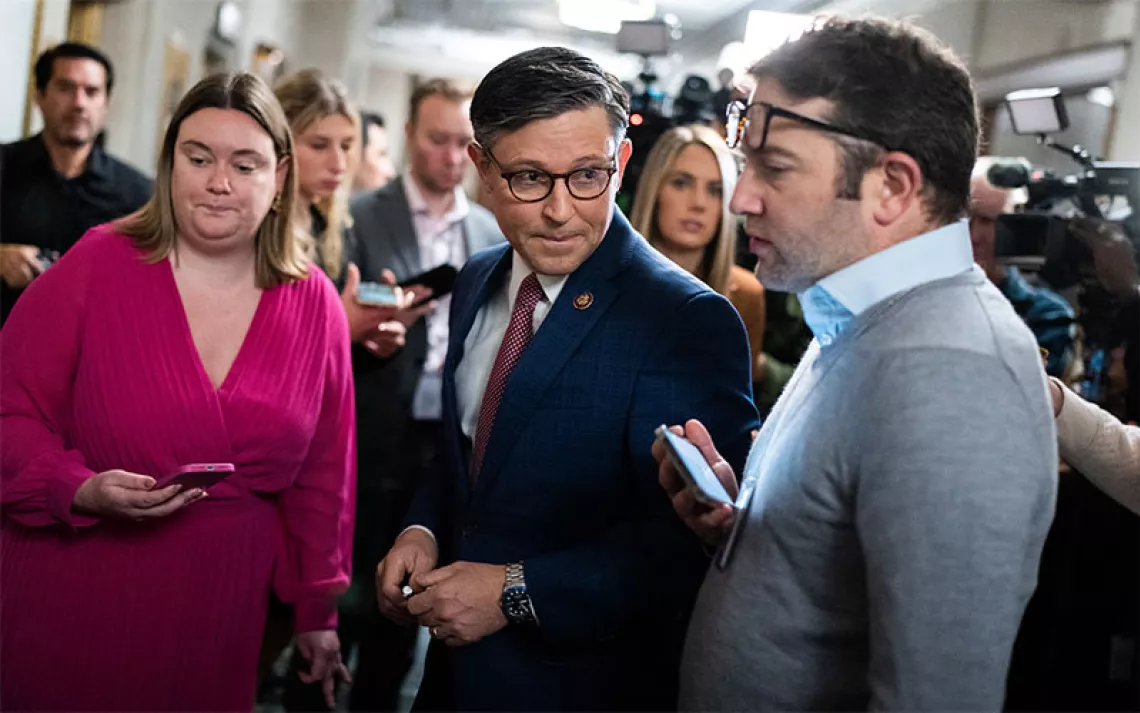Run, Women, Run!
These organizations aim to end the gender disparity in government by getting women to run for office

Emerge alums and winners of Emerge's 2016 Ambition to Action Awards discuss their experiences running for office. Photo courtesy of Emerge America.
On January 20, a man who bragged about sexually assaulting women was sworn in as the 45th president of the United States. The next day, at least half a million women and allies marched on Washington, D.C.—and more than a million marched elsewhere nationwide—in a show of solidarity with the most at-risk populations in the Trump era.
As one of many organizations seeking to use anti-Trump energy as fuel for change, EMILY’s List—the political action committee that aims to elect pro-choice Democratic women to office—hosted a training in D.C. the day after the march to give women a quick-and-dirty low-down on how to run for office in their communities. The training echoed a refrain that, since Election Day, has been sounded with much greater urgency: In order to ensure women’s rights are protected, we need to elect more women.
Gender disparity pervades nearly every part of U.S. government. Even though 51 percent of Americans are women, we’ve never had a woman president, and only 19 percent of our Congress is female. State governments don’t fare much better.
Getting more women in government would benefit not only women politicians but also the country. Evidence indicates that electing more women would make our government better, as women in Congress tend to introduce and co-sponsor more bills and are more likely to work across the aisle.
So why haven’t we achieved gender parity? Despite what many assume, it’s not because male incumbents are usually reelected, nor is it because people don’t vote for women. In fact, states with term limits don’t have better female representation, and several studies have found that women are just as likely as men to win elections. The reason we’re not even close to gender parity in government is that women simply do not run as often as men do. They are less likely to consider a career in politics when they’re young, or to be encouraged to run for office, or to value their own qualifications.
Here are three organizations setting out to change that.
Emerge America
Emerge America—which partnered with EMILY’s List for the Sunday training—holds 70-hour intensive trainings for Democratic women considering a run for office. They cover everything from campaign strategy and fundraising to social media and cultural competency, and how women can harness their existing skills. “We let women know that the things you already do make you uniquely qualified to run for office,” says A’shanti Gholar, Emerge America’s political director. “The things you do at work, in the community, at home.” And they have a strong track record: 70 percent of their alumnae who ran for office in 2016 won; 39 percent of their alumnae are women of color.
Emerge has programs in 17 states, and Gholar says the organization will likely expand soon. “After the election, we got bombarded with women who want to create Emerge chapters in their states.” And many of the states they do cover saw their number of applicants for 2017 double or triple immediately following Election Day. “Several states had already closed their application process, but they reopened it so more women could apply.”
She Should Run
While Emerge trains women who are set on running for office, She Should Run pushes women to consider running. “We’re trying to convert women to this cause and to this leadership path,” says Executive Director Clare Bresnahan. The nonpartisan organization runs a free online incubator that helps plant the seed for a future run for office; it’s gotten 5,000 sign-ups since November 8—a huge spike. And since women tend to have to be asked multiple times before they decide to run, She Should Run has its Ask a Woman to Run for Office initiative.
Running Start
“Political ambition for women drops off in high school and college,” says Melissa Richmond, vice president of Running Start, “so we get them early.” A nonpartisan organization, Running Start has six programs for high school and college women as well as recent graduates
And they don’t all focus on public office. With its Elect Her program, which this year will hold trainings at 75 college campuses nationwide, Running Start also pushes young women to get involved in student government. They’ve had a 76 percent win rate so far. The program may help solve the disparity in government down the line, as more than 40 percent of women in Congress served in student government.
Richmond says that their main message is that women “don’t have to fit a mold in order to run for office. They can be themselves and still be a qualified leader.”
Other organizations in the field include the Republican State Leadership Committee—whose Right Women, Right Now initiative recruits and trains women for state-level candidacies nationwide—the National Federation of Republican Women, VoteRunLead, and the Political Institute for Women, which trains women for careers in government and to be advocates and leaders of nongovernmental organizations.
 The Magazine of The Sierra Club
The Magazine of The Sierra Club







